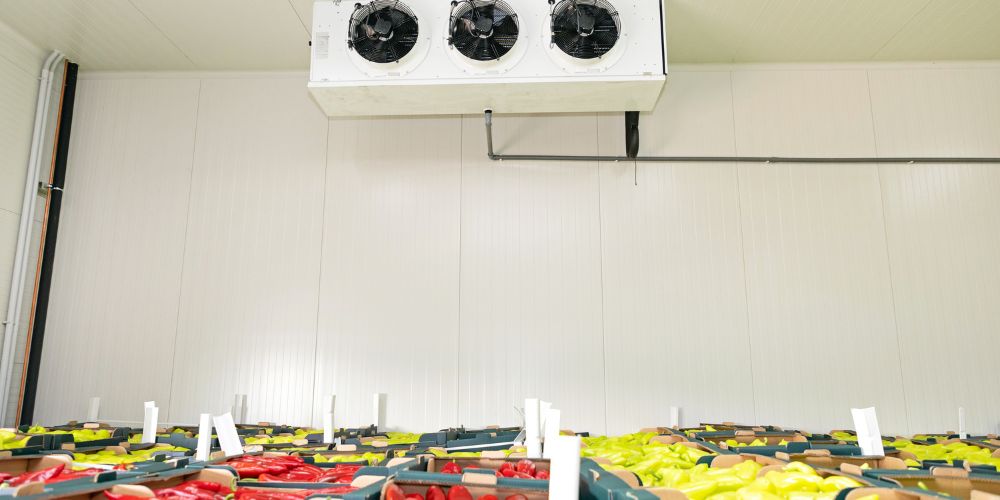Where and Why We Need Cold Storage for Warehouses

Cold storage facilities are instrumental in maintaining a sophisticated and high-tech storage process on an industrial scale.
Cold storage facilities are essential for food, pharmaceuticals, and other goods that need cold or refrigerated storage. Therefore, giving us a picture of the sheer scale of the cold supply chain in which storage and temperature control are essential components.
Why do we need cold storage?
According to Dickson, cold storage is needed to preserve the integrity, shelf life, and quality of perishable or other sensitive products like food, medication, and artwork. In addition, cold storage requires keeping them within a specific temperature range. As a result, keep these delicate items cold or frozen to limit their physical and chemical alterations, preserving their purity and preventing biodegradation. Cold storage aims to supply high-quality products to consumers.
What can we store in a cold storage facility?
Cold storage must store items that require a specific low-temperature environment. Some of the many assets in cold storage facilities include the following:
Food: Several industries use cold storage services to maintain the freshness of food, including restaurants, supermarkets, and grocery stores. These industries may require home refrigerators, entire cold stores, or walk-in freezers based on the type of merchandise stored and customer needs. In addition, high-pressure freezers can preserve large quantities of food for long periods.
Wax Products: Products made of waxy materials require a cool environment, including items destroyed by melting, which results in losses for the company. The need for cold storage regulated facilities in warehouses housing wax-based goods is growing.
Artwork: Collectors and artists can prevent the spoilage of paintings by storing them at low temperatures. Not all, but many artists, collectors, and galleries still keep art in regulated temperature settings. Old works of art especially need controlled temperatures in their storage areas as the paint can start to peel from the canvas in case of inadequate environmental conditions.
Plants: Low temperatures keep plants healthy, especially ornamental plants. Florists and decorative flower companies need cold storage warehouse facilities for storing flowers with cut stems.
Cosmetics: Beauty products like lipsticks, mascaras, nail paints, etc., can be destroyed at high temperatures. For their long-term storage, companies must have optimal temperature regulation in the warehouse.
Medicines:Pharmaceutical companies often use cold storage to store specific drugs, such as syrups, injections, etc., and maintain appropriate structure. The low temperature in cold storage prevents contamination and supports their efficacy.
Textile: Companies with organic fabric materials such as fur, leather, or wool always need cold storage in their warehouse to prevent them from rotting and instability in high temperatures.
Types of cold storage
There are many types of cold storage, from single units to dedicated facilities. The type of cold storage facility depends on the user’s requirements and the number of goods at hand.
Some of these types include:
Refrigerated containers
Small shipments of temperature-sensitive products like beverages or CBD benefit from refrigerated containers and are more cost-effective. They can also be mobile, giving the users extreme flexibility in terms of use.
Blast freezers and chillers
Blast freezers and chillers are ideal for companies that need quick solutions for cooling and storing food before it reaches the end consumer, primarily commonly used by larger restaurants and catering companies.
Cool rooms
Cool rooms are a more extensive alternative to Blast freezers and refrigerated containers, often used by manufacturing companies and businesses dealing with large quantities of temperature-sensitive goods.
Pharmaceutical-grade cold storage
Hospitals and research institutions often use more extensive pharmaceutical-grade refrigeration warehouses to store biopharmaceuticals, blood, and certain vaccines.
Cold storage attached to the plant
Cold storage warehouses attached to plants through conveyors are the preferred option for businesses that want to keep their cold storage at home. For example, factories may transport the product to a dedicated cold storage site.
Dedicated custom cold-storage equipment
Numerous companies use custom cold storage facilities for their complex needs, depending on the product’s or end user’s requirements or preferences. Those who wish to avoid the cost of on-site equipment choose to use in-house or dedicated refrigeration equipment provided by a third party.
Which industries use cold storage?
Cold storage has enabled the development and success of organ transplantation. The petrochemical and high-tech electronics industries use cold storage because chemical reactions and metals are sensitive to temperature changes. In addition, cold storage has applications in the medical space to store all kinds of drugs, laboratory samples, vaccines, equipment, and other sensitive assets.
Cold storage has enabled the development and success of organ transplantation. The petrochemical and high-tech electronics industries use cold storage because chemical reactions and metals are sensitive to temperature changes. In addition, hotels and restaurants, the distillery industry, and medical facilities related to forensic purposes use temperature control systems and cold storage warehouses for storage.
Cold storage has several applications that have allowed development for other industries. For example, refrigeration and freezing allowed easier food access and ready-meal options.
Medicine and healthcare have become more accessible by allowing rural and remote areas access to modern benefits. A benefit that was once only available to a limited population. Cold storage reduces food and pharma waste. It is the most efficient way to handle perishable goods, with the help of being cost-effective for all parties involved. The numerous applications of this technology are a testament to the practicality of cold storage and how it has enabled us to manage our daily lives better.